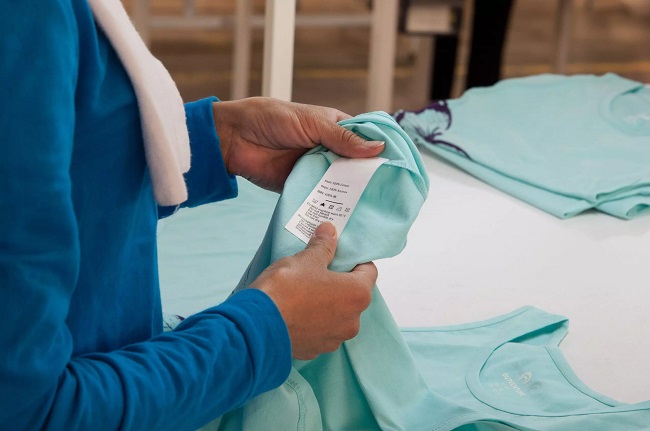
The fashion industry is on the cusp of a major transformation, driven by a compelling need for transparency and sustainability. Enter blockchain, a revolutionary technology poised to reshape how clothes are made, distributed, and ultimately, consumed.
Tracing the Journey: From farm to final sale
One of the biggest challenges in fashion is a lack of transparency. Blockchain offers a solution with its secure and immutable ledger system. Every step of a garment's journey, from raw materials to finished product, can be tracked and verified. This empowers consumers to make informed choices about the clothes they buy and strengthens brands' commitment to sustainability. For example, Lectra's TextileGenesis partnered International Cotton Association to promote ethical trade and sustainability.
Combating counterfeiting
Counterfeiting is a multi-billion dollar problem, damaging brands and potentially posing health and safety risks. Blockchain can significantly reduce counterfeiting by creating a unique digital identity for each product. This allows for easy authentication and exposes counterfeit items. Aware Traceability Platform for example, offers a user-friendly solution for brands to implement blockchain in their supply chains.
Streamlining the supply chain
Fashion supply chains are complex, involving numerous stakeholders. Blockchain acts as a centralized platform, streamlining communication and data sharing. This translates to faster information retrieval, lower operational costs, and a more agile and responsive industry. Martine Jarlgaard pioneered the use of blockchain in fashion with garments featuring smart labels that recorded every step of the manufacturing process.
Early days, big potential
While the promise is undeniable, blockchain adoption in fashion is still in its early stages. Challenges include the cost of implementation, the need for industry-wide standards, and ensuring data privacy. Additionally, the fragmented nature of the industry and varying levels of digital readiness pose hurdles.
Industry collaboration is a must for blockchains success, widespread adoption requires collaboration among brands, suppliers, and retailers. Implementing blockchain can be expensive, especially for smaller companies with limited digital infrastructure.
The road ahead
Phased approach: Experts recommend starting small, focusing on tracing a specific product line or aspect of the supply chain.
Focus on practical applications: Focus on projects that address specific needs, such as ethical sourcing or counterfeit prevention.
Collaboration is key: Industry collaboration is crucial to overcome challenges and unlock the full potential of blockchain.
While blockchain is still in its early stages in fashion, it has the potential to be a game-changer. By embracing this technology, brands can become more transparent, sustainable, and efficient, ultimately benefiting the entire fashion ecosystem.











